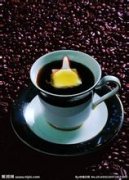A brief introduction to the Market Price of simple and mild Uganda Fine Coffee Bean varieties

The western branch of the East African Rift Valley runs through the western border, with many rivers and lakes at the bottom of the valley. Uganda has a great Victoria lake, coupled with the high mountains, which makes Uganda a mild climate suitable for growing coffee, although it spans both sides of the equator.
The coffee growing industry in Uganda is one of the pillar industries of its exports. Uganda is the birthplace of Robsta in Africa, just as Ethiopia is the origin of Arabica coffee, while Robster coffee was first discovered in Uganda. So far, Uganda has a history of growing coffee for more than 100 years. At the same time, Uganda is one of the few major countries in Africa dedicated to the production of organic coffee. In Uganda (Uganda), Arabica coffee beans account for only 15% of the country's total coffee production. Uganda's best coffee is mainly produced in the mountains of Elgon and Bugisu along the Kenyan border in the northeast and Ruwensori in the west.
In the 16th century, Portuguese colonists occupied the coastal areas. In 1890, Germany and Britain divided East Africa, and Kenya was classified as Britain. The British government declared Kenya its "East African protectorate" in 1895 and changed it into its colony in 1920. Coffee was grown on large estates under British colonial rule, and the harvested beans were shipped to London for sale. The Coffee Act of 1933 was passed and the Kenya Coffee Commission was established, which in turn transferred coffee sales to Kenya. The auction system was established in 1934 and is still in use today. The following year, a draft grading system to help improve the quality of coffee was formally prepared. Kenya was founded in the Republic of Kenya on December 12, 1964 and remains in the Commonwealth. Nowadays, a variety of high-quality coffee can be produced. Kenya has made considerable progress in coffee research and development, and many farmers have highly professional knowledge of production. Kenya's coffee bidding system should help to get higher prices for producers who value quality.
Kenyan buyers are world-class buyers of premium coffee. All coffee beans are first acquired by the Kenya Coffee Commission (CoffeeBoardofKenya, CBK), where they are identified, graded, and then sold at weekly auctions, where they are no longer graded. The Kenya Coffee Commission only acts as an agent, collecting coffee samples and sending them to buyers so that they can determine the price and quality.
The best coffee grade in Kenya is bean berry coffee (PB), followed by AA, AB and so on.
PB (PeaBerry) round beans: this is the grading for small round beans. This means that there is only one stone in the coffee fruit, not the common two kernels.
E: that is, "elephant beans", the size is very large, and the output is relatively small.
AA: this is a more common grade. Coffee beans are larger in size and have a particle size higher than 18 mesh or 7.22mm. This kind of beans usually get the highest price.
AB: this grade coffee bean combines A (particle size 16 mesh or 6.80mm) with B (particle size 15 mesh or 6.20mm); accounts for about 30 per cent of Kenya's annual coffee production.
C: this grade is lower than that of AB and is rare in high-quality coffee.
TT: a lower grade, mostly consisting of small beans removed from AA, AB, and E beans. If screened by density, the lightest beans are usually TT.
T: the lowest grade, usually made up of coffee crumbs and broken beans.
MH | ML: these two abbreviations stand for Mbuni Heavy and Mbuni Light. Mbuni means coffee beans that are sun-treated. These beans are considered to be of low quality, usually with immature or overripe coffee beans, and the price is quite low. This grade accounts for about 7% of Kenya's annual coffee production.
The characteristics of coffee, taste mild and simple, with a papaya flavor.
Dry aroma (1-5): 3.2
Wet aroma (1-5): 3.4
Acidity (brightness) (1-10): 8
Taste (layered) (1-10): 8.5
Taste (alcohol thickness) (1-5): 4
Aftertaste (residue) (1-10): 8.1
Balance (1-5): 0
Basic score (50): 50
Total score (maximum 100): 85.2
Strength / main properties: medium strength / high oil content, simple and mild
Recommended baking degree: full city or full city+
Contrast: a unique African coffee, very similar to Indonesian coffee
Uganda is a landlocked country in eastern Africa, across the equator, most of the territory is located in the Central African Plateau, lakes, with an average elevation of 1,000,000m above sea level, with many lakes and plateaus in the mountains, known as "plateau water villages".
Important Notice :
前街咖啡 FrontStreet Coffee has moved to new addredd:
FrontStreet Coffee Address: 315,Donghua East Road,GuangZhou
Tel:020 38364473
- Prev

A brief introduction to the history and culture of the origin and development of fresh-flavored Ugandan boutique coffee beans
Most of Uganda is located in the Central African Plateau, with lakes, with an average elevation of 1000 mi 1200 meters. There are many lakes and plateaus in the mountains, which are known as the water villages of the plateau. The western branch of the East African Rift Valley runs through the western border, with many rivers and lakes at the bottom of the valley. Uganda has a great Victoria lake, coupled with the high mountains, which makes Uganda a mild climate suitable for growing coffee, although it spans both sides of the equator. Right and wrong in Uganda
- Next

A brief introduction to the cultivation of Ugandan boutique coffee beans, geographical location, climate and altitude
Ugandan coffee beans have a unique flavor of delicate taste, which is very suitable for making Italian and other flavors of coffee. More importantly, Ugandan coffee beans are strictly screened according to the standards of the international market to ensure their high quality and pollution-free characteristics. Uganda is a landlocked country in eastern Africa, straddling the equator, bordering Kenya to the east, Tanzania and Rwanda to the south, and the Democratic Republic of the Congo to the west.
Related
- Detailed explanation of Jadeite planting Land in Panamanian Jadeite Manor introduction to the grading system of Jadeite competitive bidding, Red bid, Green bid and Rose Summer
- Story of Coffee planting in Brenka region of Costa Rica Stonehenge Manor anaerobic heavy honey treatment of flavor mouth
- What's on the barrel of Blue Mountain Coffee beans?
- Can American coffee also pull flowers? How to use hot American style to pull out a good-looking pattern?
- Can you make a cold extract with coffee beans? What is the right proportion for cold-extracted coffee formula?
- Indonesian PWN Gold Mandrine Coffee Origin Features Flavor How to Chong? Mandolin coffee is American.
- A brief introduction to the flavor characteristics of Brazilian yellow bourbon coffee beans
- What is the effect of different water quality on the flavor of cold-extracted coffee? What kind of water is best for brewing coffee?
- Why do you think of Rose Summer whenever you mention Panamanian coffee?
- Introduction to the characteristics of authentic blue mountain coffee bean producing areas? What is the CIB Coffee Authority in Jamaica?

